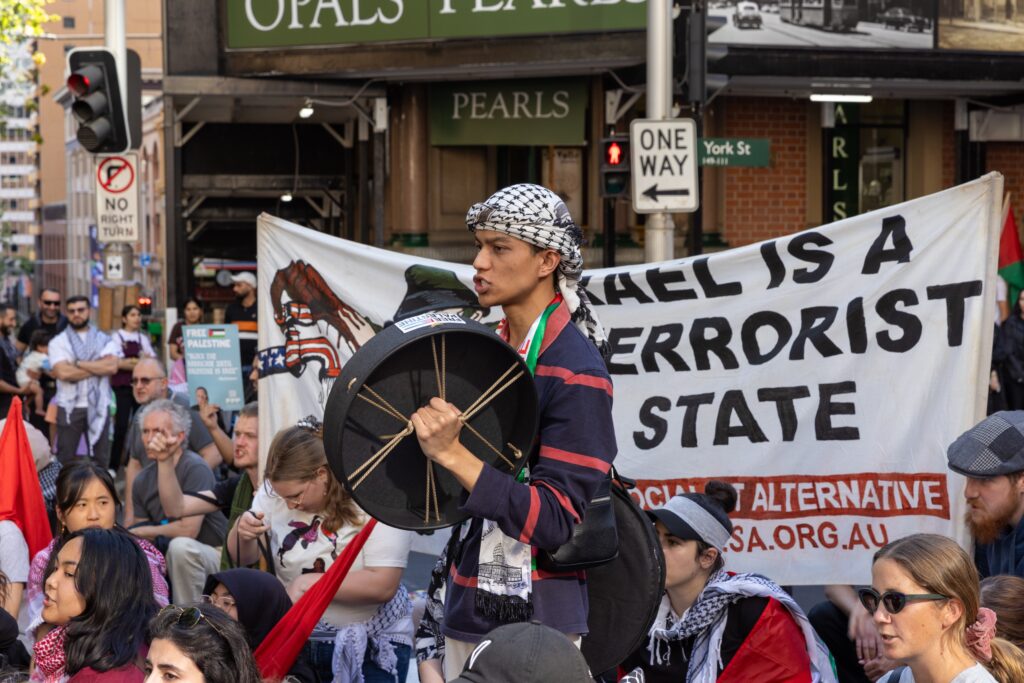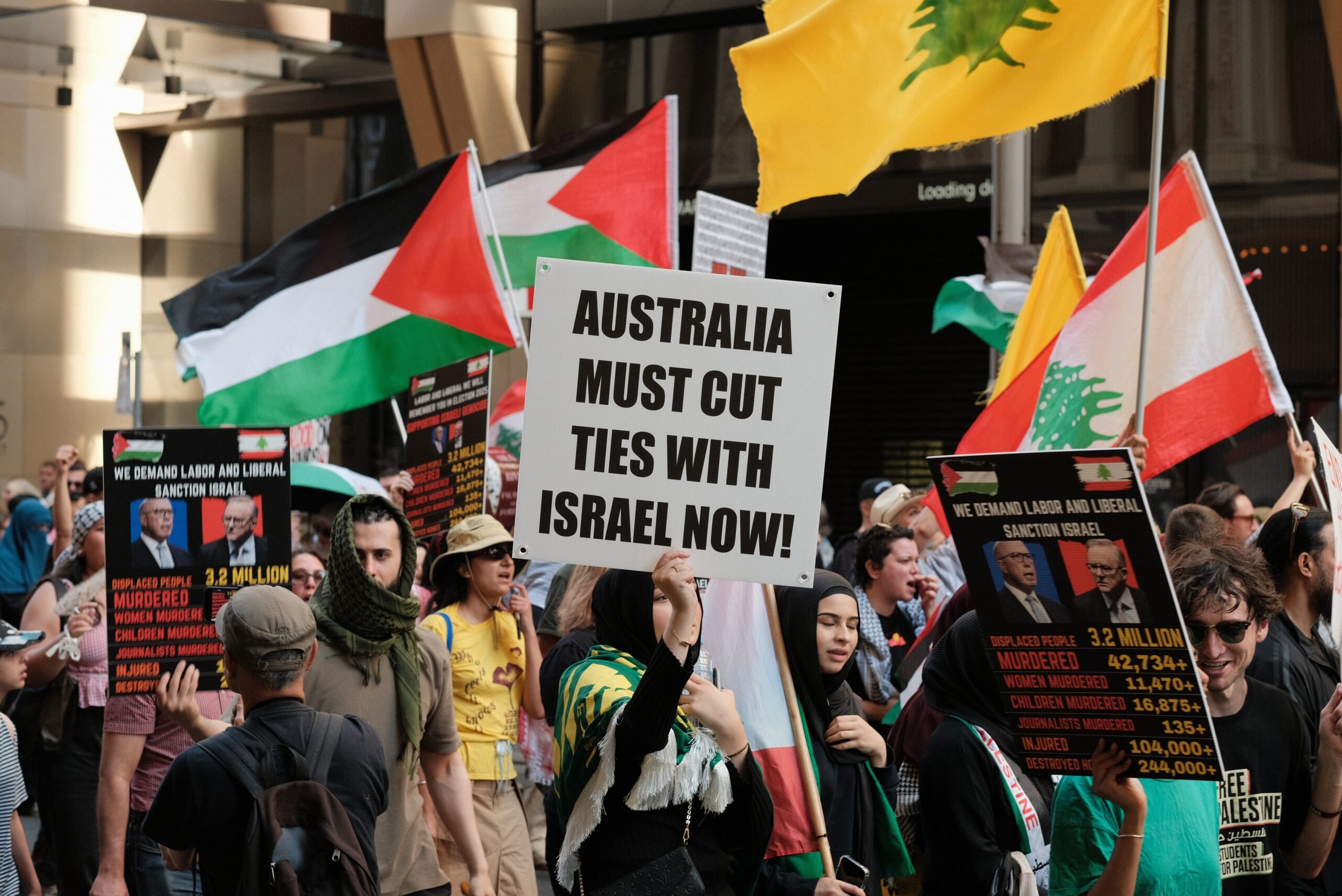In an unprecedented diplomatic move, Australia has expelled Iran’s ambassador and three diplomatic staff members after its intelligence agencies found credible evidence that Tehran orchestrated antisemitic attacks on Australian soil. The decision marks the first time Australia has expelled a foreign ambassador since World War II, signaling the gravity of the allegations and the country’s firm stance against foreign interference.
Prime Minister Anthony Albanese announced on Tuesday that Australia’s domestic spy agency had obtained “credible intelligence” linking Iran to at least two antisemitic attacks in the country. These were described as “extraordinary and dangerous acts of aggression orchestrated by a foreign nation on Australian soil.”
Iranian Ambassador Ahmad Sadeghi and three other diplomatic staff have been given seven days to leave the country. The expulsion represents a dramatic escalation in Australia’s response to what it considers state-sponsored terrorism on its territory.
The most prominent of these attacks occurred in December 2024, when mask-wearing attackers set the Adass Israel Synagogue in Melbourne ablaze before dawn, gutting much of the building. The predawn attack on December 6 destroyed the synagogue and left a worshipper with minor burns.
Security footage revealed three individuals dressed in hoodies and masks who used an axe to damage the synagogue’s entrance before pouring the contents of red jerry cans inside the building and setting it alight. Some congregants were inside the single-story building at the time, but no serious injuries were reported.
In the early hours, as a few Melbourne Jews were saying their morning prayers, two men crept up to the Adass Israel Synagogue, poured accelerant around its doors and set it alight.
— Nicole Lampert (@nicolelampert) December 6, 2024
This synagogue was set up by Holocaust survivors. Unusually, it was an anti Zionist or non… pic.twitter.com/IGr1npTy3W
The attacks were not isolated incidents. In another incident, about 20 people were inside a synagogue in East Melbourne when a man poured flammable liquid on the front door before setting it on fire during a Shabbat dinner.
The Australian government’s response has been swift and multifaceted. Beyond the diplomatic expulsions, several additional measures have been implemented. Australia withdrew its own ambassador to Iran and suspended the embassy’s operations in Tehran, with Australian diplomats relocated to “a third country” for safety. The government announced it will legislate to list Iran’s Islamic Revolutionary Guard Corps (IRGC) as a terrorist organization. This designation would bring significant legal and financial consequences for any Australian entities dealing with the IRGC. Australian police have made arrests in connection with the synagogue attacks, with at least two suspects apprehended in what represents a breakthrough for investigators.
Prime Minister Albanese condemned the attacks, stating, “There is no place in Australia for an outrage such as this. To attack a synagogue is an act of antisemitism, [and] is attacking the right that all Australians should have to practice their faith in peace and security.”
The Prime Minister’s language has consistently emphasized that these attacks represent not just criminal acts, but assaults on Australia’s multicultural fabric and democratic values. The decision to attribute them to the Iranian state direction elevates the incidents from domestic hate crimes to matters of national security and international relations.
The Combat Antisemitism Movement (CAM) responded to the development by calling on all world leaders, global intelligence services, and law enforcement agencies to urgently investigate the role of foreign subversive actors, especially the Iranian regime, in orchestrating and financing anti-Semitic violence and anti-Israel demonstrations across the globe.
CAM warns that this revelation is not an isolated case but part of a wider pattern of malign activity. For years, the Iranian regime has exported terrorism, incited hatred against Jews and Israel, and mobilized proxies to destabilize democratic societies. These latest allegations expose how anti-Semitic attacks are being used as a weapon of statecraft.
“The Australian government’s decisive action shines a light on a terrifying truth: Antisemitism today is not only the product of fringe extremists but also a deliberate weapon deployed by hostile states,” said CAM CEO Sacha Roytman Dratwa. “If Iran is orchestrating attacks on Jewish communities in democratic countries, this represents a direct assault not only on Jews but on the safety, sovereignty, and democratic integrity of nations worldwide. Every responsible leader and agency must immediately investigate, expose, and counter this threat. Silence or complacency is complicity and could lead to the loss of life.”
The Combat Antisemitism Movement stresses that democratic governments must act decisively to protect their Jewish communities, strengthen their law enforcement and intelligence responses, and expose the networks of hate and disinformation that fuel Antisemitism globally. CAM stands ready to work with governments, security agencies, and civil society partners to confront this emerging threat head-on.
The Iranian-directed attacks occurred against a backdrop of escalating antisemitic incidents across Australia. Between October 1, 2023, and September 30, 2024, the Executive Council of Australian Jewry counted 2,062 antisemitic incidents in Australia. This represents a dramatic surge in anti-Jewish hatred that has deeply concerned community leaders and government officials alike.

The synagogue attacks sparked international condemnation and drew attention to Australia’s growing problem with religiously motivated violence. The attacks targeted not just property but the fundamental right of religious communities to worship safely and peacefully.
The expulsion marks the first time Australia has expelled a foreign ambassador since the Second World War, underscoring the exceptional nature of the government’s response. This action places Australia among a growing number of countries that have taken strong diplomatic action against Iran over various international incidents.
On Monday, Australian Home Affairs Minister Tony Burke confirmed that his government had canceled the visa application of Israeli MK (Religious Zionism) Simcha Rothman.
Ironically, Rothman accused the Albanese government of “clear and blatant antisemitism” in a post written in Hebrew on Twitter.
“This antisemitic decision is not directed at me. It is directed at the Jewish community in Australia, at the state of Israel, and at the people of Israel,” he wrote.
Rothman’s visit was billed as a “solidarity tour to show support for Australia’s Jewish community.”
In November 2024, Australia also rejected the visa application of Ayelet Shaked, a former Israeli minister who left the government in 2022, who was planning to travel to Australia for a public speaking tour.
The wave of antisemitic attacks comes amid tensions in Israel-Australia relations after the Albanese government announced earlier this month its intention to recognize a Palestinian state at next month’s United Nations General Assembly. This followed similar announcements from France, Britain, and Canada. Albanese told reporters that recognition would be predicated on commitments Australia received from the Palestinian Authority, including that the Iran-backed terrorist group Hamas would have no involvement in any future state.
Massive anti-Israel demonstrations in Australia frequently turn anti-Semitic, and witnesses reported chants of “Gas the Jews” at a demonstration in front of the Sydney Opera House in February 2024. At a recent protest in which tens of thousands shut down Sydney’s Harbour Bridge, crowds chanted “Globalize the Intifada”, waved Palestinian flags, and displayed posters in support of the Iranian Ayatollah. Protesters also reportedly called for the death of Israel Defense Forces soldiers and waved Hamas and Islamic State flags.
The Iranian government has yet to respond publicly to the allegations and diplomatic expulsions, though the timing coincides with broader international tensions involving Iran’s regional activities and support for proxy groups.
The attacks have had a profound impact on Australia’s Jewish community, with religious leaders describing the arsonists as “thugs” who targeted places of worship during sacred times, including the Sabbath. The Adass Israel Synagogue attack was particularly devastating, as it occurred at a time when worshippers occupied the building.
In January, federal police intercepted a caravan loaded with explosives intended to be detonated near a synagogue in Sydney.
The Australian Human Rights Commission condemned the attacks, with commissioners describing them as targeting “a place of worship” and representing an assault on religious freedom.
The diplomatic crisis represents a significant deterioration in Australia-Iran relations, signaling Australia’s willingness to take strong action against foreign interference. The government’s comprehensive response—combining diplomatic expulsions, embassy closures, terrorist designations, and law enforcement action—demonstrates a multi-layered approach to addressing state-sponsored terrorism.
As investigations continue and the expelled Iranian diplomats prepare to leave Australia within their seven-day deadline, the incident serves as a stark reminder of how international tensions can manifest in domestic terrorism. The Australian government’s firm response sends a clear message that foreign nations cannot operate with impunity on Australian soil, particularly when targeting vulnerable communities.
The case also highlights the evolving nature of international conflict, where state actors may use local proxies to conduct attacks against diaspora communities, creating new challenges for counterterrorism and diplomatic efforts. Australia’s response may serve as a model for other nations grappling with similar threats to their domestic security and community safety.




